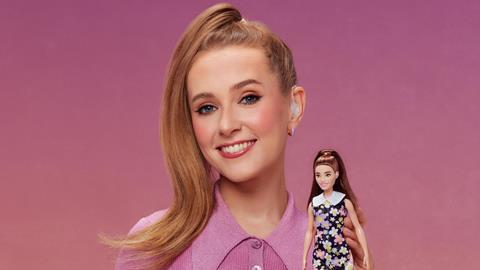A Christian primary school teacher has welcomed a newly launched Barbie doll with a hearing aid.

It’s been endorsed by the Eastenders and Strictly Come Dancing actress Rose Ayling-Ellis and it’s hoped it will help deaf children feel more included in society as they grow up.
It joins a range of children’s toys which are designed to be more inclusive and improve the lives of children with disabilities.
Fiona Gosden is a Christian and former primary school teacher who has worked with the Christian disability charity Through the Roof. She said inclusive toys made her life as a disabled teacher much easier: “As a disabled person, a wheelchair user, I believe it’s so important for children to be able to see themselves represented in the toys that they play with.
“I have seen that there are Barbies with prosthetic limbs, there are also Barbies in wheelchairs and I think what is really important in having these inclusive toys, is that it normalises disability, particularly from a young age.
“I used to be a primary school teacher and I remember going into a school that had toys, it was Barbies and wheelchairs that I saw, and also books including disabled characters.
“I really think that there were fewer stares and fewer questions at that school and I think that’s because disability is being normalised into everyday play, and socialising.”
Gosden went on to say it can be tough for disabled people to feel included at times: “Usually children are making fun of disabled people because there is curiosity.
“I actually made a decision to welcome questions from children; as we normalise disability, there will be less questions.”
Gosden also said at her local church sometimes she can face challenges: “I have found that although a Sunday can be very accessible, I’ve not been able to attend prayer meetings during the week.
“That has been a big challenge for me, I feel that every time the church has a gathering outside of the Sunday.
“Online material needs to be developed so that it’s including disabled people and the best way I think for this is to ask disabled people.”




























